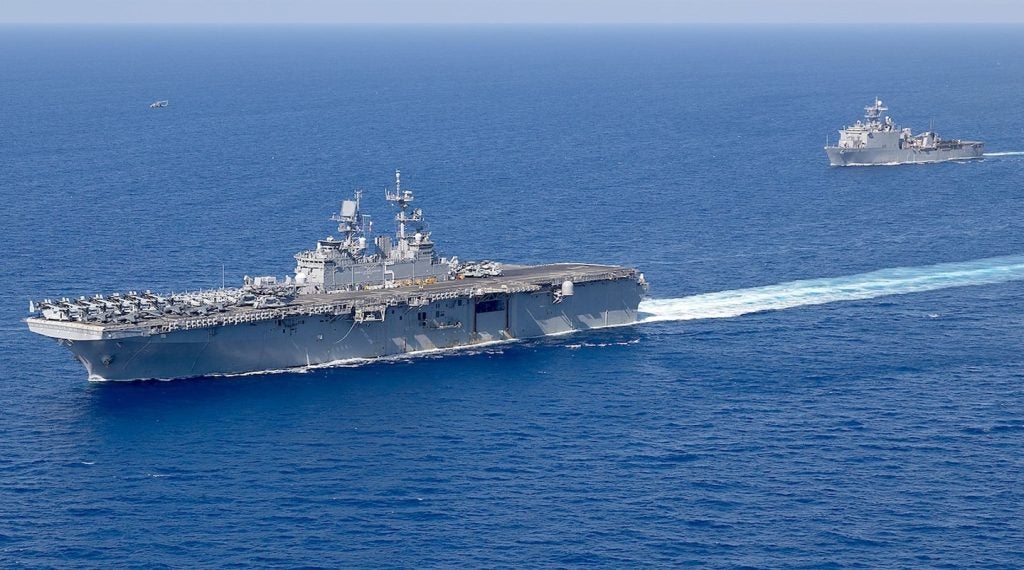More than 3,000 sailors and marines arrived in the Middle East on 6 August 2023 as part of a pre-announced deployment by the US Department of Defense (DoD).
The additional personnel come from the Bataan Amphibious Ready Group (ARG) and the 26th Marine Expeditionary Unit (MEU).
Amphibious assault ship USS Bataan (LHD 50) and dock landing ship USS Carter Hall (LSD 50) entered the Red Sea after transiting from the Mediterranean Sea through the Suez Canal. Bataan ARG/26th MEU units bring additional aviation and naval assets, as well as more US marines and sailors, providing greater flexibility and maritime capability to US Fifth Fleet.
An amphibious assault ship can carry more than two dozen rotary-wing and fixed-wing aircraft, including MV-22 Osprey tilt-rotor aircraft and AV-8B Harrier attack jets, in addition to several amphibious landing craft. A dock landing ship also supports operations for various rotary-wing aircraft, tactical vehicles and amphibious landing craft.
The US Fifth Fleet area of operations encompasses approximately 2.5 million square miles of water space and includes the Arabian Gulf, Gulf of Oman, Red Sea, parts of the Indian Ocean and three critical choke points at the Strait of Hormuz, Suez Canal and Strait of Bab al-Mandeb.
Securing free commerce in the Middle East
The DoD Press Secretary, Brigadier General Pat Ryder, summed up the motivations for strengthening its naval force in the Middle East: “In terms of why we're sending additional assets [it is to] work with partners in the region to deter potential aggression to keep those shipping lanes open, and again, to a long-standing goal of preserving security and stability in the region. And so that's why we've deployed these additional assets to give us additional options, to speed up timelines, and again, broadly, to ensure stability.
“Now all that said, I mean, we do absolutely support any type of discussion in the region that's going to prevent the kinds of actions that have created instability in the first place.”
Since 2021, Iran has engaged in a series of actions, including harassment, attacks, or seizures of nearly 20 internationally flagged merchant vessels. These actions threaten regional maritime security and have broader implications for the global economy.
“I think the Iranians are the best communicator in terms of the threat posing by their actions when it comes to seizing commercial vessels in the region, and in one case, as you know, firing on a commercial vessel,” Ryder added. “So as we have been for a very long time, we're co-ordinating with our partners in the region when it comes to US military presence because again, it's not just the US military that's out there controlling commercial shipping lanes. We're working as part of a broader coalition on that effort.”









